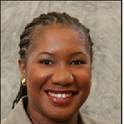
The power of hopeful thinking is often undervalued. According to C.R. Snyder, the father of hope theory, hope reflects a mental set in which we have the willpower to move toward a goal and the “waypower” or mental capacity to devise effective methods, plans, or paths to reach that goal. Both the willpower to succeed and the waypower to solve problems are required to have a truly hopeful attitude. Applying this formula to legal education, if law students lack either the willpower or the waypower for their goals, they cannot have high hope to succeed. And hope is a key predictor of academic performance in law school.
Most incoming law students generally enter law school with positive attitudes and hopeful ambitions. But a law student’s will to succeed does not automatically translate into hopeful thinking; law students also need to have the requisite mental waypower. This essay proposes that legal educators strengthen law students’ waypower—their tools, strategies, and capacities to be successful law students and competent lawyers. First, faculty should set high, but realistic, expectations for student performance. Second, faculty should equip students with the skills needed to achieve stated learning objectives and then provide students with varied opportunities for formative assessment and practice. By taking these steps, law faculty empower students with the waypower and, in turn, the hope to succeed academically and professionally.
Available at: http://works.bepress.com/cassandra_hill/2/
